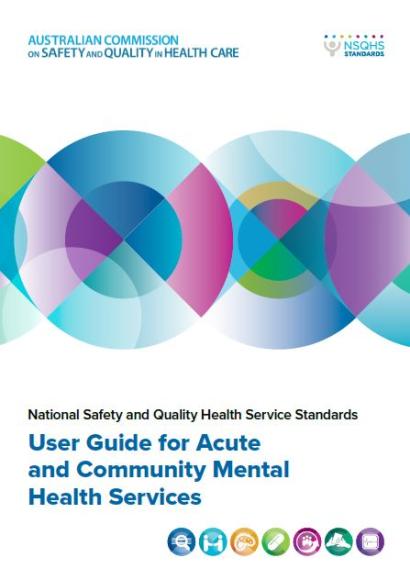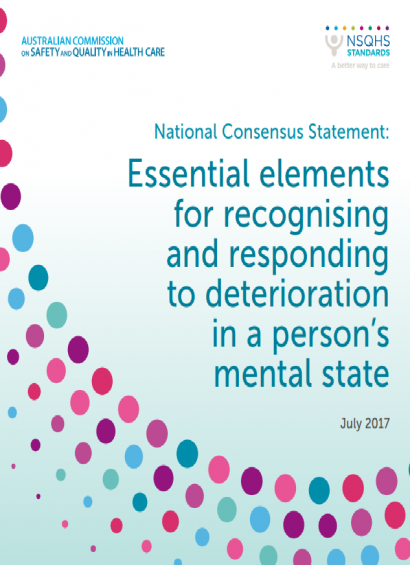Mental health
The Commission has a strong commitment to promote, support and encourage safety and quality in the provision of health care for people who experience mental health issues across all healthcare settings.
The mental health team works with colleagues across the range of Commission programs including National Standards, Medication Safety and e-Health Safety.
The Commission established a Mental Health Advisory Group in 2015 to provide expert advice on our work. Group members include representatives from national consumer and carer organisations, professional colleges, researchers, clinicians and administrators from all mental health sectors.
- National Safety and Quality Mental Health Standards for Community Managed Organisations
The Commission partnered with community managed organisations, peak bodies, consumers, carers, healthcare providers, professional bodies, Primary Health Networks, and other representatives of the sector to develop the NSQMHCMO Standards.
- National Standards in mental health services
The Commission considers that implementation of the second edition of the NSQHS Standards provides a robust framework for safety and quality in mental health services in public and private hospitals, and community services provided by local health networks.
- Medication safety in mental health
Medication safety in mental health is an important safety issue. The Commission has developed resources to support medication safety in mental health.
- Mental Health Advisory Group
The Mental Health Advisory Group was established in 2015 to provide advice, expertise and support to the Commission’s Mental Health Program.
- Escalation Mapping Template (EMT) for processes for recognising and responding to signs of deterioration in a person’s mental state
The Escalation Mapping Template (EMT) will help to determine which processes for recognising and responding to deterioration in a person’s mental state are working effectively, and identify if there are any problems and/or gaps in current processes.
- Emergency mental health contact details
This page lists a range of crisis helplines available 24/7, across all states and territories.
- Recognising Signs of Deterioration in a Person’s Mental State
During national consultation for the National Consensus Statement: Essential elements for recognising and responding to deterioration in a person’s mental state the Commission identified the need to develop consensus on a set of signs that can be used for monitoring deterioration in a person’s mental state. The Commission engaged Gaskin Research to undertake the project and provide a report.
Useful resources
-
2022Guide, user guide or guidelines
The user guide supports implementation of the National Safety and Quality Health Service (NSQHS) Standards.
-
2018Guide, user guide or guidelines
-
-
2018Publication or report
-
Contact us
If you would like further information about any of the Commission’s work in mental health, please email: mentalhealth@safetyandquality.gov.au



